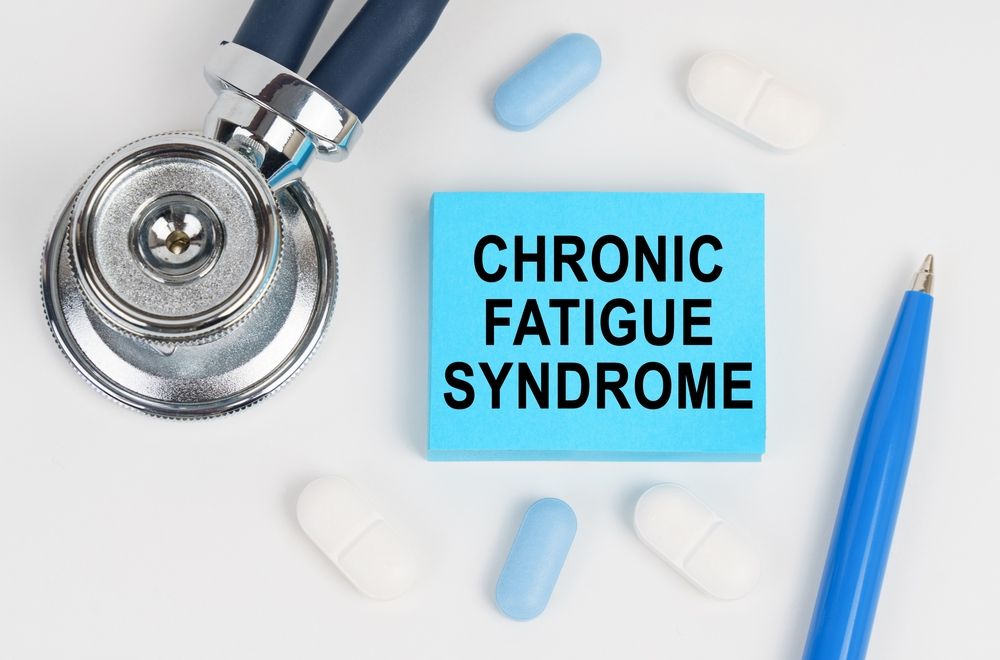Is IV Therapy Effective for Chronic Fatigue Syndrome?

Chronic Fatigue Syndrome (CFS) is a complex and debilitating condition characterized by extreme fatigue that does not improve with rest. As the medical community continues to explore treatment options, intravenous (IV) therapy has emerged as a potential remedy. This article delves into CFS, examines IV therapy, and evaluates its effectiveness in alleviating the symptoms associated with this challenging syndrome.
Understanding Chronic Fatigue Syndrome
Chronic Fatigue Syndrome is a condition that affects millions of people worldwide. It is often misunderstood and can be difficult to diagnose due to its varied symptoms. While fatigue is the hallmark symptom, CFS can also manifest in different ways.
Symptoms and Diagnosis of Chronic Fatigue Syndrome
The symptoms of CFS can significantly impact daily life. Key symptoms include:
- Persistent fatigue lasting more than six months
- Post-exertional malaise (worsening of symptoms after physical or mental exertion)
- Sleep disturbances
- Chronic pain
- Cognitive difficulties, often referred to as "brain fog"
Diagnosis is primarily through exclusion, as there are no specific tests for CFS. Healthcare professionals typically assess the patient’s history and symptoms to make a diagnosis, often relying on criteria established by organizations like the Centers for Disease Control and Prevention (CDC).
The Impact of Chronic Fatigue Syndrome on Quality of Life
CFS can have a profound impact on a person's quality of life. Many individuals struggle with daily tasks, employment, and social interactions due to their debilitating symptoms. The emotional toll is often just as significant, with many experiencing anxiety, depression, or isolation as a result of the condition.
Support from family, friends, and healthcare providers can play a crucial role in managing the impact of CFS. Understanding this syndrome's nuances is essential for those who wish to support individuals living with it.
An Overview of IV Therapy
Intravenous therapy, commonly known as IV therapy, delivers vitamins, minerals, and medications directly into the bloodstream. This method is used in hospitals for a variety of conditions but has gained traction in alternative health circles as a potential treatment for chronic conditions, including CFS.
The Basics of IV Therapy
IV therapy involves inserting a needle into a vein, usually in the arm. A healthcare professional administers the treatment, infusing fluids and nutrients based on the individual's needs. This method bypasses the digestive system, allowing for higher absorption rates of the nutrients involved.
Different formulations are available, depending on the condition being treated. In the context of CFS, IV therapy can provide essential nutrients and hydration that may be lacking in individuals with this syndrome.
How IV Therapy Works
The efficacy of IV therapy lies in its ability to deliver nutrients directly into the bloodstream, thus providing immediate effects. For CFS patients, this therapy may help alleviate symptoms by replenishing deficiencies, improving hydration, and boosting energy levels.
Commonly used nutrients in IV therapy for CFS include:
- Vitamin C
- B vitamins
- Magnesium
- Glutathione
Each of these nutrients plays a role in cellular function and energy production, making them relevant for individuals battling chronic fatigue.
The Role of IV Therapy in Treating Chronic Fatigue Syndrome
As researchers continue to study CFS, the role of IV therapy is becoming clearer. While not a cure, it may offer symptom relief for some patients.
The Science Behind IV Therapy for Chronic Fatigue Syndrome
Research into IV therapy's effectiveness for CFS is ongoing. Preliminary studies suggest that administering nutrients like magnesium and B vitamins can help improve energy levels and overall well-being in some patients.
These nutrients are essential for energy metabolism and may have a role in reducing fatigue and improving neurological function, both of which are frequently reported issues in CFS patients.
Potential Benefits of IV Therapy for Chronic Fatigue Syndrome
The potential benefits of IV therapy for CFS may include:
- Increased energy levels
- Improved hydration
- Nutritional support, helping to address deficiencies
- Enhanced recovery times after exertion
Individual experiences may vary, and while some users report significant improvements, others may not notice any change. Consulting with a healthcare provider knowledgeable about CFS is crucial for making informed decisions about treatment options.
Risks and Considerations of IV Therapy for Chronic Fatigue Syndrome
While IV therapy can provide benefits, it is important to consider the associated risks and contraindications.
Possible Side Effects of IV Therapy
Some potential side effects include:
- Infection at the injection site
- Phlebitis (inflammation of the vein)
- Allergic reactions to infused substances
- Fluids overload, particularly in those with heart issues
It's vital for individuals to speak with their healthcare provider about these risks, especially if they have underlying health conditions.
Who Should Avoid IV Therapy?
Certain individuals should approach IV therapy cautiously or avoid it altogether. Those with the following conditions may need to reconsider:
- Heart or kidney issues that may be exacerbated by fluid intake
- Allergies to specific nutrients commonly used in IV therapy
- History of blood clotting disorders
A thorough medical evaluation is essential before pursuing IV therapy.
Other Treatment Options for Chronic Fatigue Syndrome
In addition to IV therapy, various treatment options can help manage CFS symptoms. These approaches can be used in conjunction with IV therapy or independently, depending on individual needs.
Lifestyle Changes and Home Remedies
Some beneficial lifestyle changes may include:
- Establishing a regular sleep routine
- Engaging in gentle exercises, such as yoga or walking
- Maintaining a balanced and nutritious diet
- Practicing stress management techniques like meditation or mindfulness
Implementing these changes can provide significant relief and improve overall well-being.
Medications and Supplements
Some patients find relief through medications and supplements, such as:
- Antidepressants to address mood disorders
- Pain relievers for chronic pain
- Supplements like coenzyme Q10 or D-ribose, which may help with energy production
These options can be explored with the guidance of a healthcare professional tailored to the individual's needs.
In conclusion, while IV therapy shows promise for some individuals with Chronic Fatigue Syndrome, it is essential to consider all treatment options and consult with healthcare providers to determine the best course of action for managing symptoms effectively.










